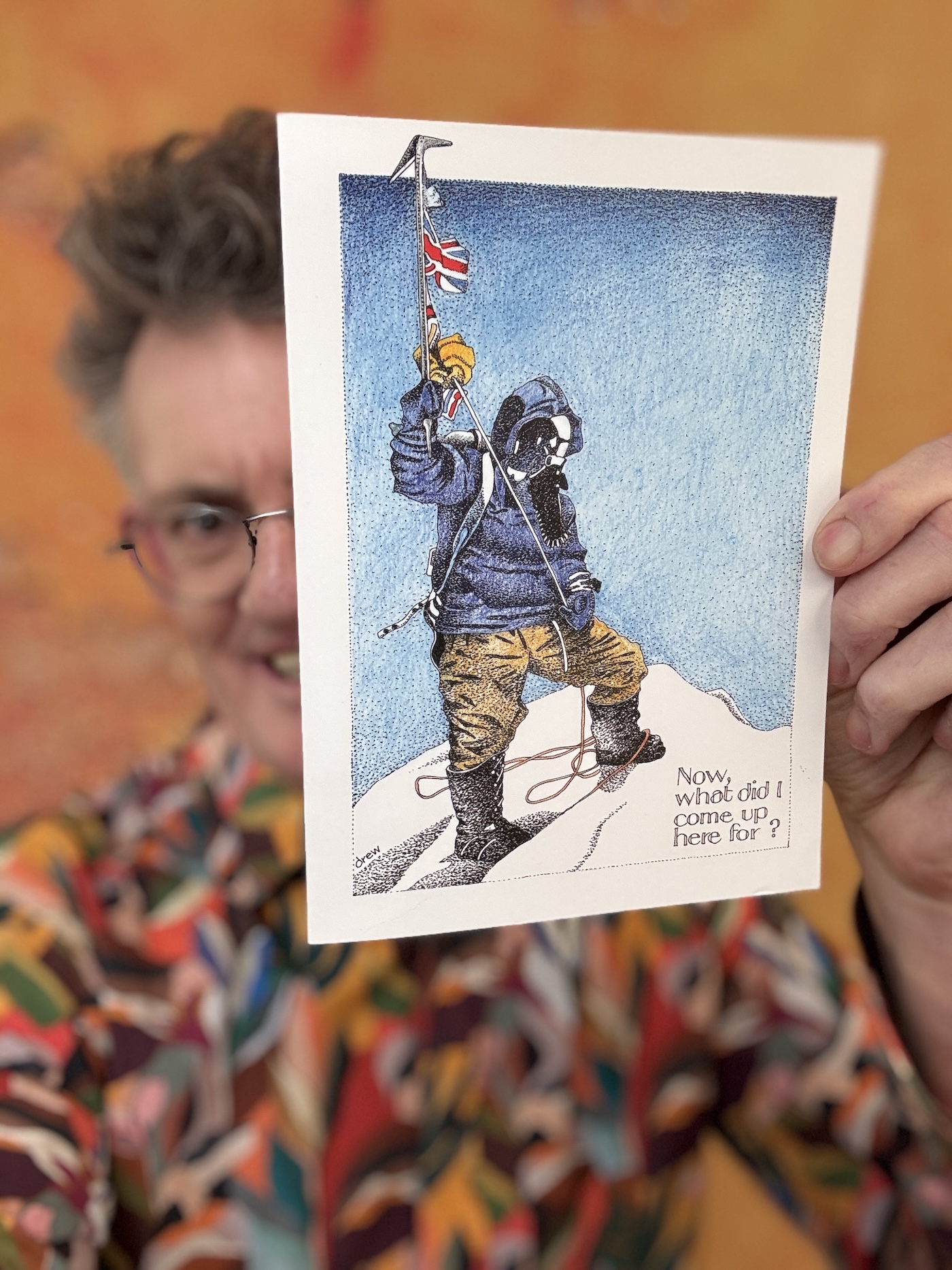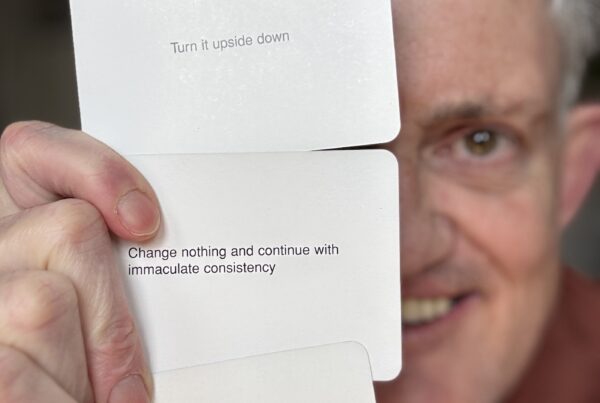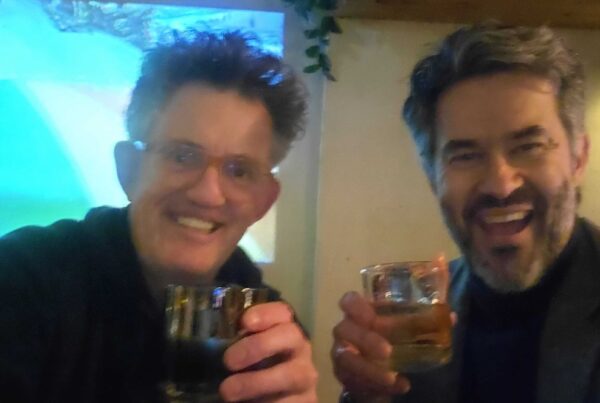
Marcella’s card to me after my Cotopaxi adventure.
I was mis-guided. Here’s what I learned.
(I’ll be doing some guiding myself on November 11 (some public coaching) and Nov 12 (a public co-working session). You can sign up for one or both of these complimentary sessions here.
Way way way back in March, I climbed a mountain in Ecuador.
Not just a mountain, a volcano.
Not just a volcano, a live volcano that is 19,000ft/6,000m high.
>> Ridiculous <<
And by “climb a mountain,” I mean, hidden in the subtext, “I didn’t make it to the summit”.
I wasn’t the only one who turned back early. About 40% of us, for one reason or another, didn’t summit Cotopaxi.
One of the reasons I didn’t make it was because of my guide.
I did not have a good guide.
There’s every possibility I might not have made it to the top anyway.
But the fact that my guide unilaterally decided that my hiking partner Ron and I had to go back down definitely brought things to a premature end.
So, as you climb your metaphorical mountain (literal and metaphorical), I’ve got thoughts on a few things you might look for in the guides (literal and metaphorical) you have in your life.
- Curious about the full catastrophe
I’ve always loved the title of Jon Kabat-Zinn’s book, Full Catastrophe Living, which in turn is a nod to Zorba the Greek. Life, everything: it’s “the full catastrophe”.
Look for a guide who is curious about
Where you are on your journey. What you have the capacity for and what you don’t. Where you’ve succeeded and failed in the past, and what that’s taught you.
What you want. How are you defining success these days? What are the internal and external metrics that matter to you?
My Cotopaxi guide didn’t find out anything about me. He just headed up the mountain with me attached to a rope behind him.
(You’ll find some good questions and exercises to deepen your own understanding of who you are in How to Work with (Almost) Anyone.)
- Smart teaching
You won’t be surprised to hear that I want a guide that helps me learn—who coaches me—but perhaps you’ll be surprised by how I go about doing that.
When I teach, I often throw people into an exercise or a process with almost no guidance. It’s: Just do it, figure it out as best you can, and then we’ll talk.
Because the powerful moment is often not in the setup, but in creating the space after the moment to reflect and learn.
In The Coaching Habit, the “learning question” is, “What was most useful or valuable for you?”
Variations on that are “What are you learning?” or “What do you know now that you didn’t know before?”
A great guide knows when the teaching moment might be and how best to deliver it. Before or after. Self-guided or shared insight. Corrective or exploratory.
Our guide used none of the above as a teacher. 😠
Ron and I were both absolute novices at walking up a glacier in pitch darkness wearing crampons, tied to a rope, and struggling to breathe. But there was no teaching or coaching—just frustration with us when we struggled to get things right.
- Acknowledges the moments
As you’ve likely noticed, I slip “you’re awesome and you’re doing great” into as many interactions as possible.
I love it because no matter what’s going on, it’s a recognition that you’re fundamentally wonderful, and you’re most likely doing the best you can. It helps people be seen and encouraged, which helps people find confidence and tenacity.
When things are hard, I hope to have a guide who’ll say, “this is hard, you’re OK”.
When things are triumphant, I hope to have a guide who’ll say, “this is fantastic, you’re OK”.
On Cotopaxi, when we got turned back, our guide was angry at us, and then (insult to injury) scampered down the volcano without us, leaving us to pick our way down through the darkness.
Find your guide. Be a guide
I hope you’ll find the people you need to guide, facilitate, and encourage you on whatever path it is you’re on.
And I hope you’ll be that guide to some people in your life. They need good people like you.
Because you’re awesome, and you’re doing great.
Want The Works in your inbox? Sign up (free) here




